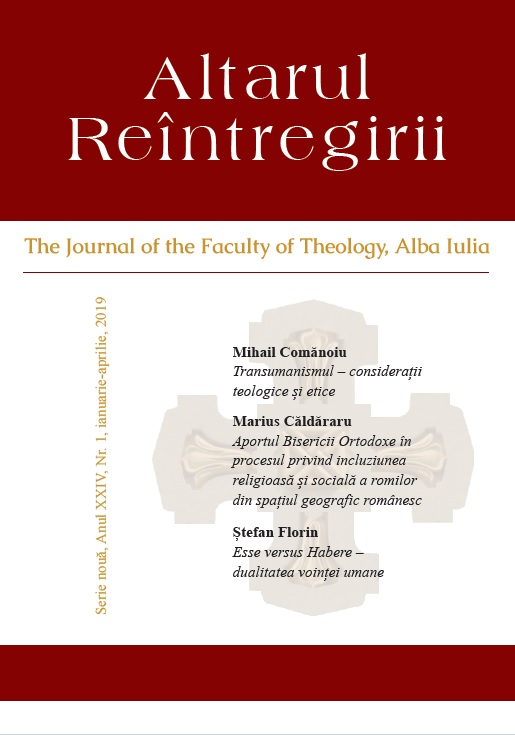Aportul Bisericii Ortodoxe în procesul privind incluziunea religioasă și socială a romilor din spațiul geografic românesc
The contribution of the Orthodox Church during the
religious and social inclusion process of the Gypsy people from the Romanian geographical space
Author(s): Marius CăldăraruSubject(s): Christian Theology and Religion, Theology and Religion, Pastoral Theology
Published by: Facultatea de Teologie Ortodoxă Alba Iulia
Keywords: gypsy; social inclusion; gypsy priests;
Summary/Abstract: This study is necessary for a betterunderstanding of religious and social inclusion of Gypsy people fromRomania, by The Romanian Orthodox Church. The study completes the picture of historical events to which the Gypsies participated. In other words, the study is important because it shows us that the Church is not guilty for the Gypsy slavery in Moldova and Ungro Vlahia, although it does not infirm the research findings of previous historians, but it speaks us about some events which they have not considered important. We know about Saint Antim Ivireanu who took care of Gypsy people. Wefind out about his concern for the Gypsies from the indications that he gave to the monks of the monastery he founded. Also, the Patriarch Miron Cristea showed a lot of interest in bringing the Gypsies to the Church. The Patriarch was the godfather for one or more gypsy children and he delegated more gypsy missionaries. This missionary activity was continued, after the fall of Communism, by Archbishop Varsanufie, which founded in his diocese an office of catechesis the Gypsies and ordained gypsy priests for this mission. The Romanian Orthodox Church ordained gypsy priests immediately after the abolition of slavery, which took place in 1856, and this reality shows us that the Church purposed the religious and social inclusion of gypsies from Romania.
Journal: Altarul Reîntregirii
- Issue Year: XXIV/2019
- Issue No: 1
- Page Range: 37-47
- Page Count: 11
- Language: Romanian

